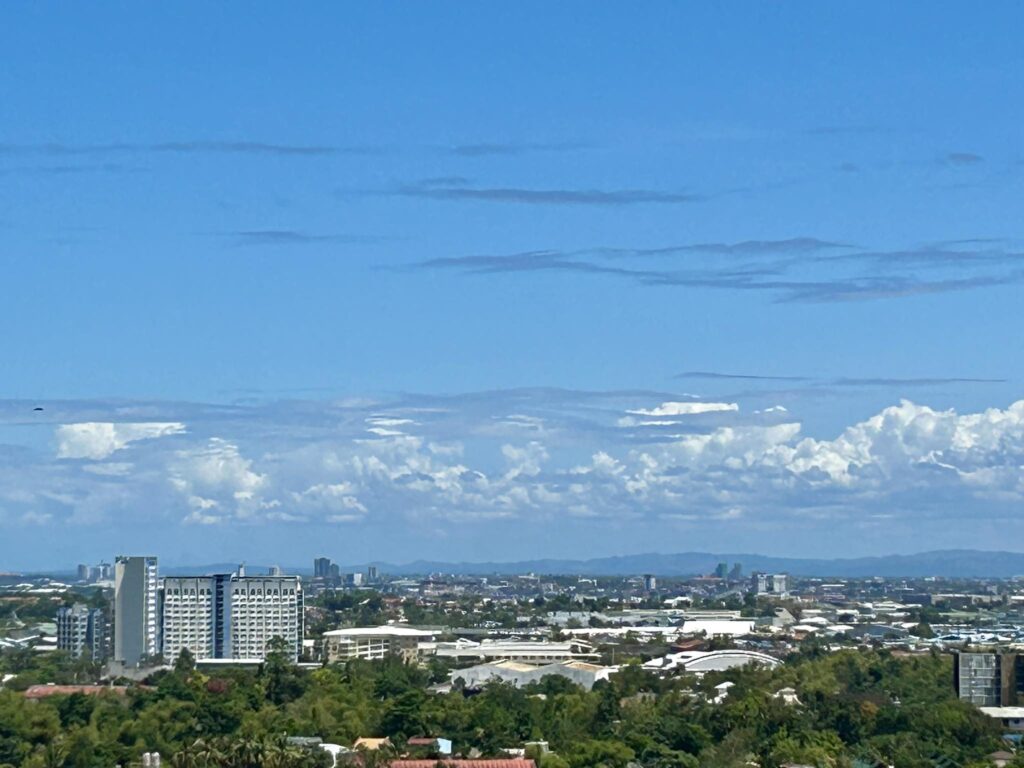
The radiant skyline of Cebu. | CDN Photo/ Pia Piquero
CEBU CITY, Philippines – Expect hotter temperatures on Black Saturday in Metro Cebu and the rest of the province, with the maximum heat index forecast reaching 37 degrees Celsius.
This forecast has been issued by the Philippine Atmospheric, Geophysical, and Astronomical Services Administration (Pagasa) Visayas Regional Services Division on Saturday, March 30.
READ MORE: Sunny skies expected during Holy Week in Cebu — Pagasa-Mactan
Recently, the province has experienced hot weather conditions due to higher humidity, resulting in the heat index reaching up to 40 degrees Celsius at unexpected hours of the day.
According to Engineer Al Quiblat, chief of Pagasa-Mactan, higher humidity indicates increased moisture in the air, potentially leading to feelings of stickiness, discomfort, and higher heat index values.
Previously, Quiblat announced that during the Holy Week season, people could experience rising temperatures due to higher humidity.
“So naa na na siya under category ug sa katong effect days nato sa heat index nga extreme danger so possible nga ang heat fronts, heat excursion ug kanang prolonged exposure sa sun possible nang maka stroke,” Quiblat warned.
(So that is already there under the category, and those effect days of the heat index of extreme danger is so possible that the heat fronts, heat excursion, and that prolonged exposure of the sun could possibly cause a stroke.)
On March 28, the temperature felt like 39 degrees Celsius, reaching an extreme caution level.
Meanwhile, the weather in Cebu will generally be pleasant for the next five days, with occasional isolated rain showers from localized thunderstorms. Temperatures will range from 26 to 33 degrees Celsius.
Wind speeds will be between 30 to 40 kilometers per hour, and coastal conditions will be slight to moderate.
Authorities advise everyone to avoid long sun exposure, wear light clothes, and stay hydrated to prevent heat strokes.
READ MORE: Hot weather to prevail nationwide on Saturday — Pagasa
On March 23, Pagasa announced the beginning of summer.
The country is still facing the effects of El Niño, which could lead to less rainfall. This may cause dry spells or droughts in some areas until the first quarter of 2024, Pagasa said. /clorenciana

